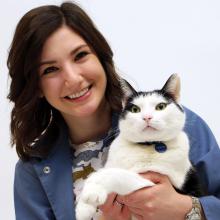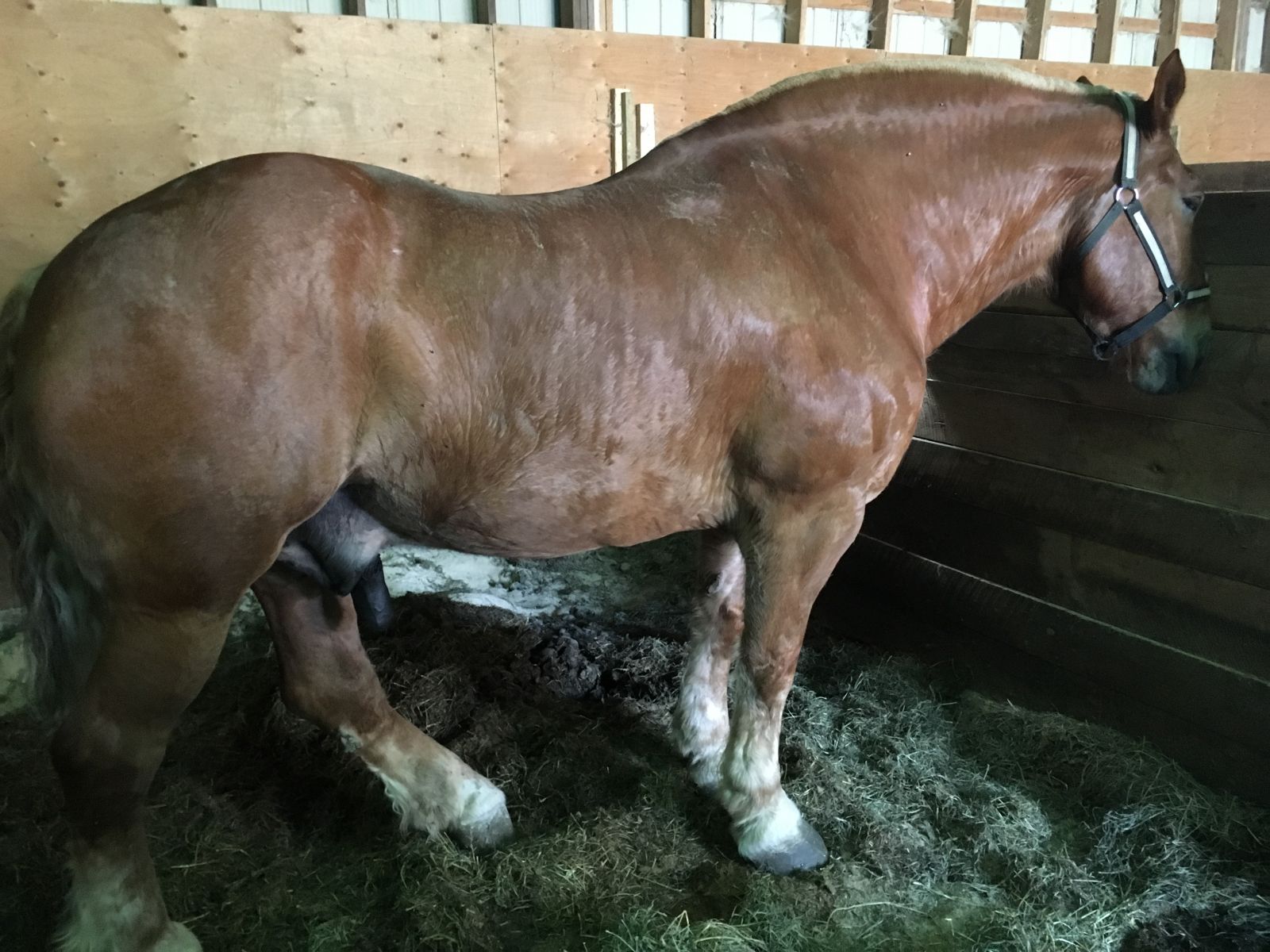As many of you in the veterinary profession know, dental care is exceptionally important for the overall health of our patients. Clients are always encouraged to bring in their cats and dogs for regular dental cleanings to prevent the onset of dangerous dental disease, such as tartar buildup and periodontal disease. But what about our 18 hand tall and 2,200 pound patients? Horses need regular dental care as well! Even though my main focus is companion animal medicine, I also have my own horse and am always interested in learning about equine general medicine so that I can perform routine care for her by myself.
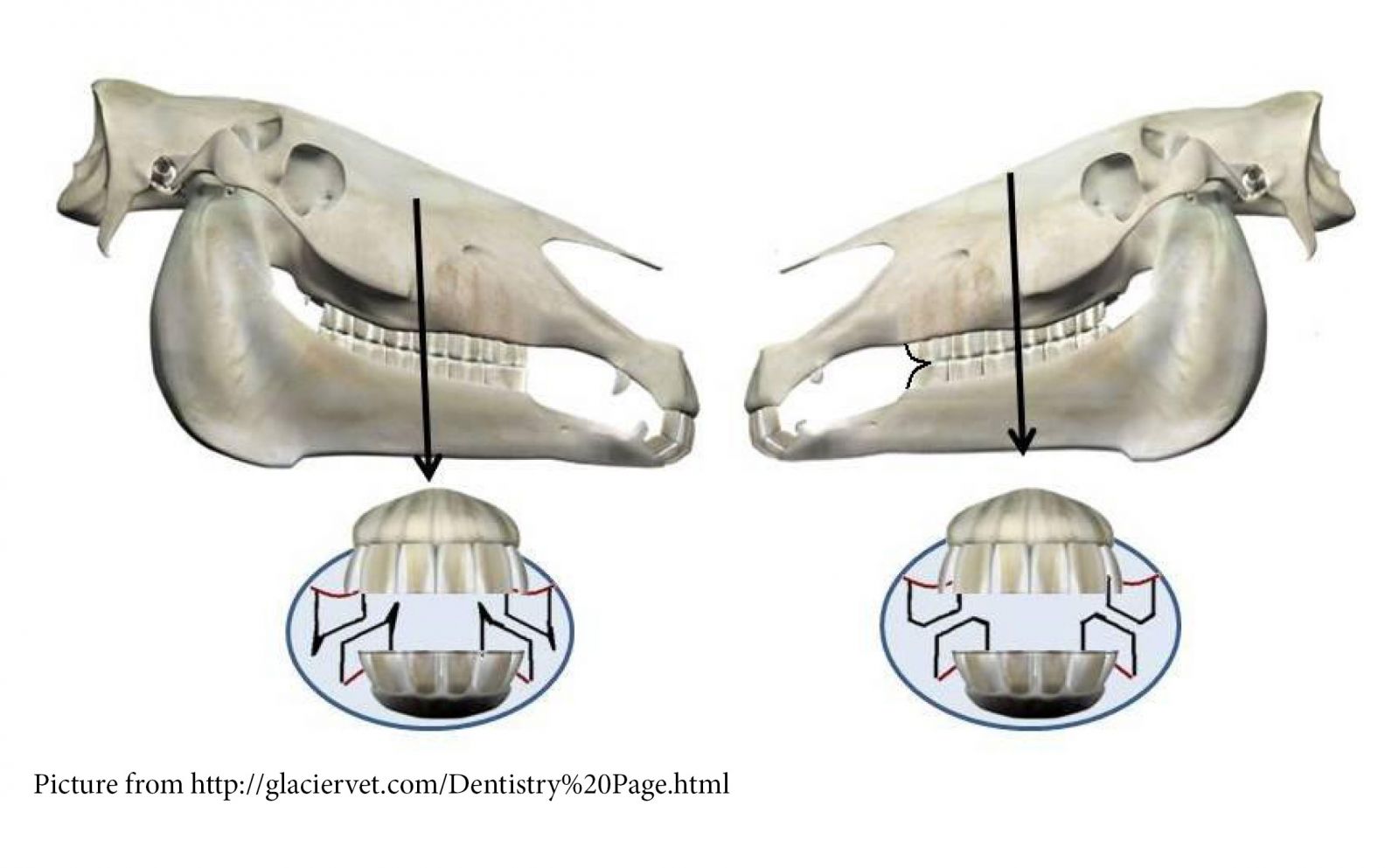 Did you know it is encouraged to have horses’ teeth taken care of by a veterinarian at least once a year? Horses are hypsodonts, which means that their teeth continually grow throughout their life time. They also chew their food with their molars in a sliding motion that wears down the inside surfaces of their upper molars and the outside surfaces of their lower molars. Even with proper alignment of the molars, over time they develop sharp edges in the mouth that must be filed down (or commonly known as being “floated”). Floating a horse’s mouth is done under sedation with either hand held rasps or with a ‘Power Float’. The rasps, or float, are scraped evenly along the cheek teeth to smooth out all of the sharp edges.
Did you know it is encouraged to have horses’ teeth taken care of by a veterinarian at least once a year? Horses are hypsodonts, which means that their teeth continually grow throughout their life time. They also chew their food with their molars in a sliding motion that wears down the inside surfaces of their upper molars and the outside surfaces of their lower molars. Even with proper alignment of the molars, over time they develop sharp edges in the mouth that must be filed down (or commonly known as being “floated”). Floating a horse’s mouth is done under sedation with either hand held rasps or with a ‘Power Float’. The rasps, or float, are scraped evenly along the cheek teeth to smooth out all of the sharp edges.
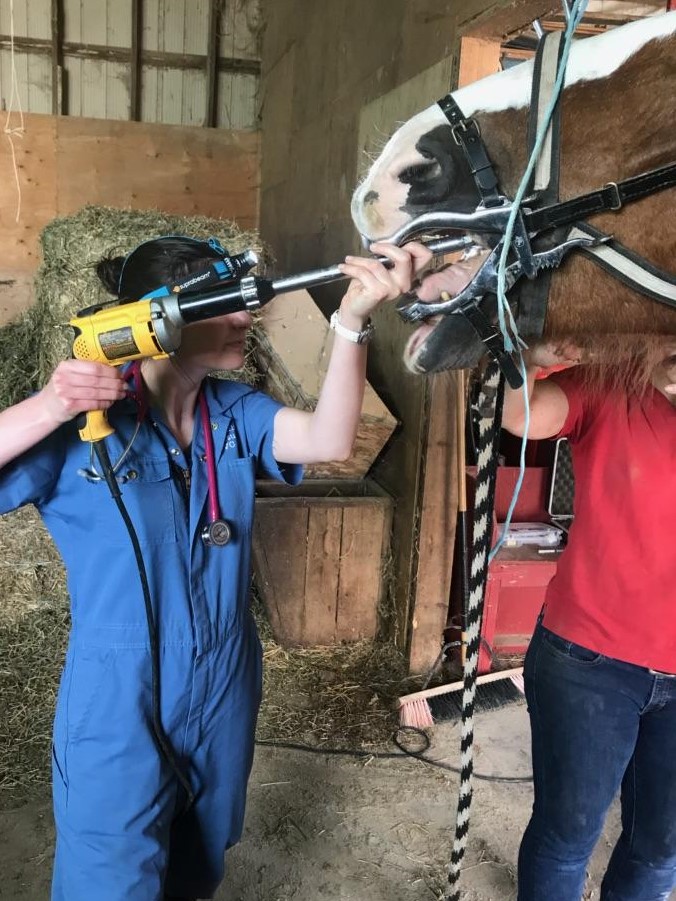
The horse in this picture was purchased by his owner this past year and had never had his teeth floated at his new home. When we opened up his mouth there was a surprise waiting for us… hooks! Hooks form when the horse has an overbite, which means the upper molars slightly overlap and sit in front of the lower molars. Due to the misalignment of the teeth the upper first molars grow an extra sharp point that reach over the first lower molars.
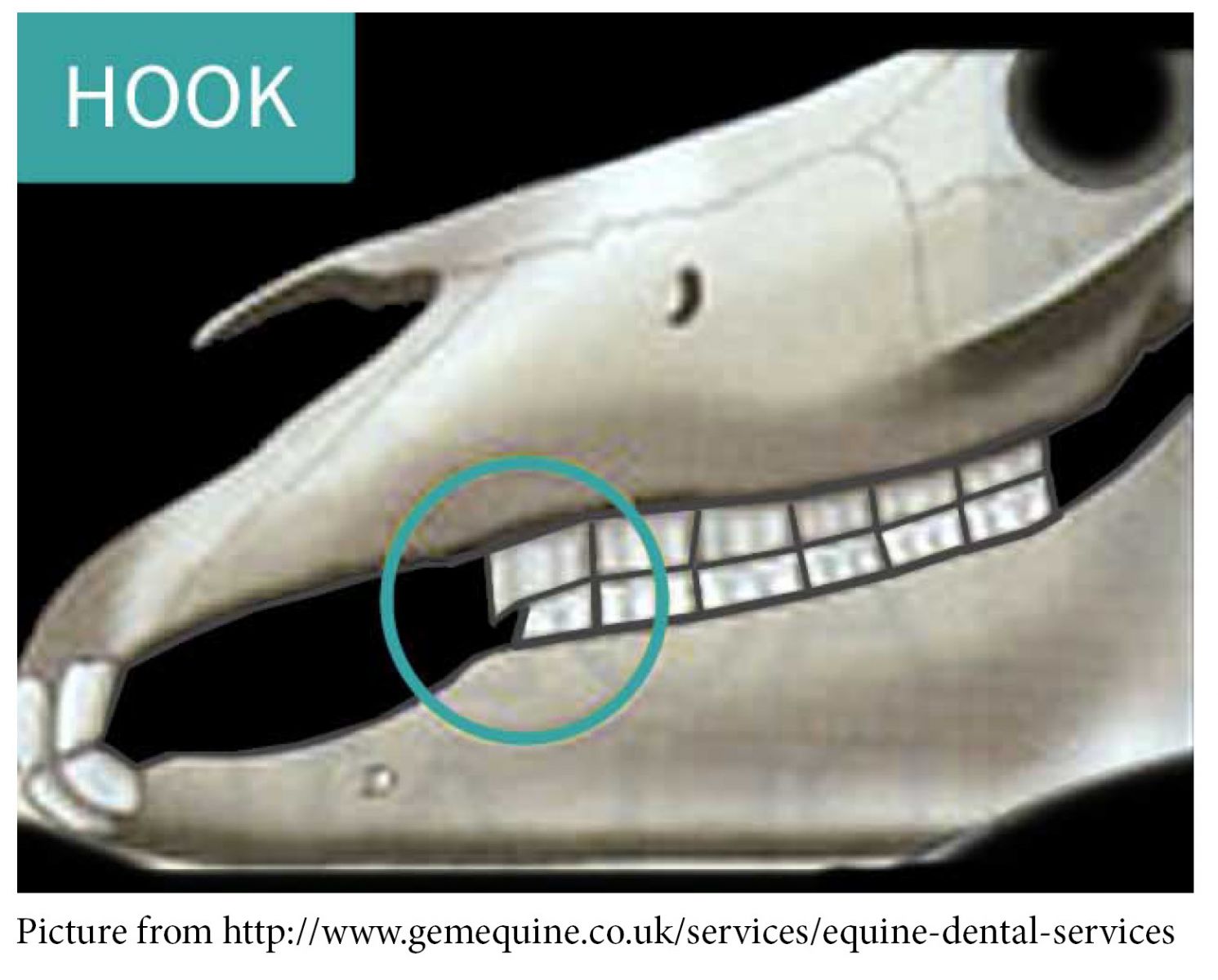
.jpg)
The picture on the left demonstrates what has happened in this horse’s mouth and the red arrow on the right points out a hook in our patient. After filing down the hooks, and all other sharp points of the molars, this horse is feeling much better and is ready to go for show season. At this barn I learned that Belgian horses compete in pulling competitions and the teams of horses win based on the weight of the load pulled and how far the team can pull that load. Judging by the size of this guy, I’m sure he will have no troubles winning all of his competitions this year!
